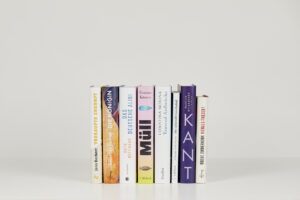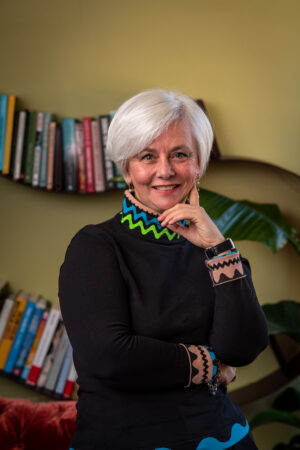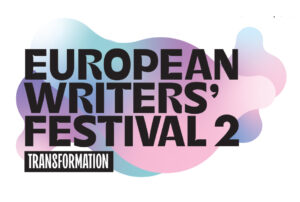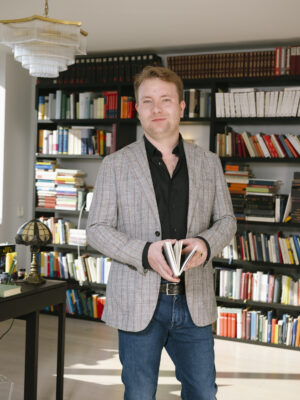As the official English-language media partner for the German Non-fiction Prize 2022, we are delighted to announce the shortlisted books.
Click here for a pdf with information on all shortlisted books
We are pleased to share information on the books shortlisted for the German Non-fiction Prize 2022. Below, you will find a short summary of each book, the jury’s comments, a sample translation in English and the contact details for any enquiries.
We send our warm congratulations to all those authors and publishers who have made the shortlist.
Please note: These books appear on our website as we are proud to be the English language media partner for the German Non-fiction Prize. Only the books selected by our jury qualify for guaranteed translation funding, not books which are mentioned on the website in articles and information updates.
The Shortlist – with jury comments and sample translations
On the list as a whole: Doubt is essential for understanding the present, which is inhabited by ghosts of the past. The upheavals and conflicts of our present attest to this. The nominated books offer clever expositions of problems and sharp analyses of some of the fundamental configurations of our time. Some are impressive in their precision and intellectual candour, others in their unorthodox approaches and surprising associations. With an elegant and light touch, they help us to understand major themes while bearing witness to freedom and courage, happiness and repression, and challenging world views and rationales we take for granted. These books open up spaces that are worth entering, revealing not prefabricated truths, but suggestions for deepening our thinking and tolerating contradictions – suggestions that allow us to look at the world a little differently.
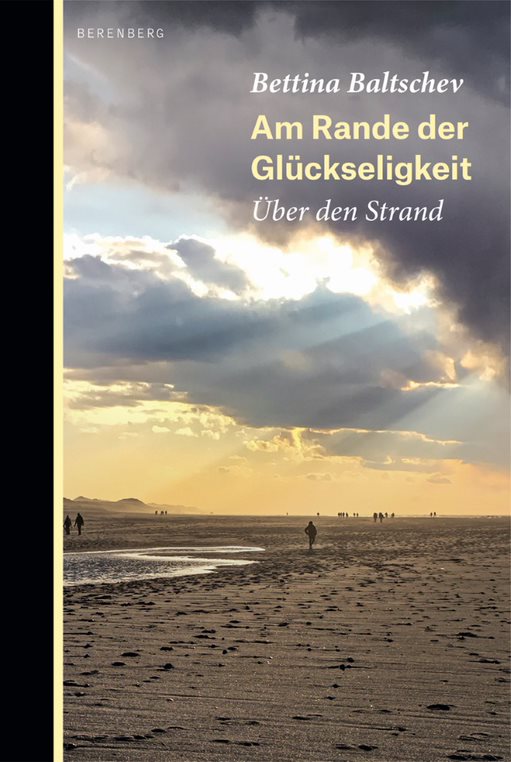
Bettina Baltschev: Am Rande der Glückseligkeit (On the Edge of Happiness) (Berenberg Verlag)
A book that changes how you look at the world. The way Bettina Baltschev writes about beaches makes you see the border between sea and land as never before. In Ostend, Max Beckmann writes: “If I were emperor of the earth, I would request as my supreme right to spend a month every year alone on the beach.” Bettina Baltschev is familiar with this heaven on earth. Yet, in her inspiring essay, she also reveals beaches as places of politics and history. She takes her readers to Dunkirk with Winston Churchill (“We shall fight on the beaches …”) and to Utah Beach in Normandy with J.D. Salinger on D-Day, and describes the suffering and misery of the migrants on the Beach of Refugees in Lesbos today.
In short: the way Bettina Baltschev writes about beaches makes you see the border between sea and land as never before.
Click here for a sample translation by Sophie Duvernoy
Bettina Baltschev, born in Berlin in 1973, studied cultural studies, journalism and philosophy in Leipzig and Groningen. She is managing director of the Sächsischer Literaturrat (Saxon Literature Council), an author and editor for the regional broadcaster MDR, and commutes between Leipzig and her second home in Amsterdam. Most recently, Berenberg published “Hölle und Paradies. Amsterdam, Querido und die deutsche Exilliteratur” (Hell and Paradise. Amsterdam, Querido and German Literature in Exile) (2016).
For foreign rights enquiries please contact:
Beatrice Faßbender (Berenberg Verlag)
Tel.: +49 (0) 30 21 91 63-60
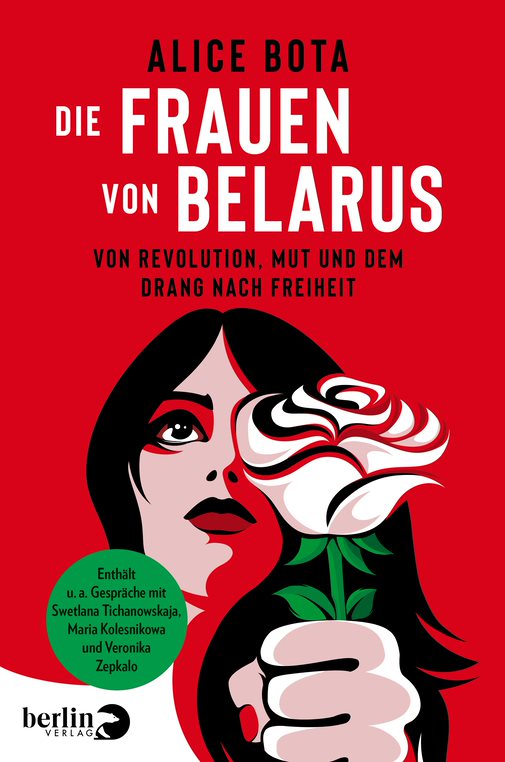
Alice Bota: Die Frauen von Belarus (The Women of Belarus) (Berlin Verlag)
A convincing plea for free, liberal, pluralistic societies and against post-Soviet-style dictatorships – from the mouths of women who are fighting for their freedom right now in the middle of Europe. In her book, journalist Alice Bota combines reporting, research and analysis, striking on a legitimate way to present even our current moment in non-fiction, respectfully and compassionately. Based on her knowledge of the conditions in Belarus, gathered first hand over the course of many years, the author allows both nameless and well-known heroines of the resistance to speak for themselves, enlightening her readers in the best sense of the word. At the same time, through hundreds of interviews, she collects important historical evidence. Bota’s feminist perspective unites contemporary and social history.
In short: a plea for free, pluralistic societies – from the mouths of women who are fighting for it right now in the middle of Europe.
Click here for a sample translation by Caroline Waight.
Alice Bota, born 1979 in Krapkowice, Poland, is a journalist, author and editor of Die Zeit. She has received numerous accolades including the Axel Springer Award. She has headed up the Die Zeit office in Moscow since 2015.
For foreign rights enquiries please contact:
Elisabeth Wiedemann (Berlin Verlag)
Tel.: +49 (0) 89 381801-735
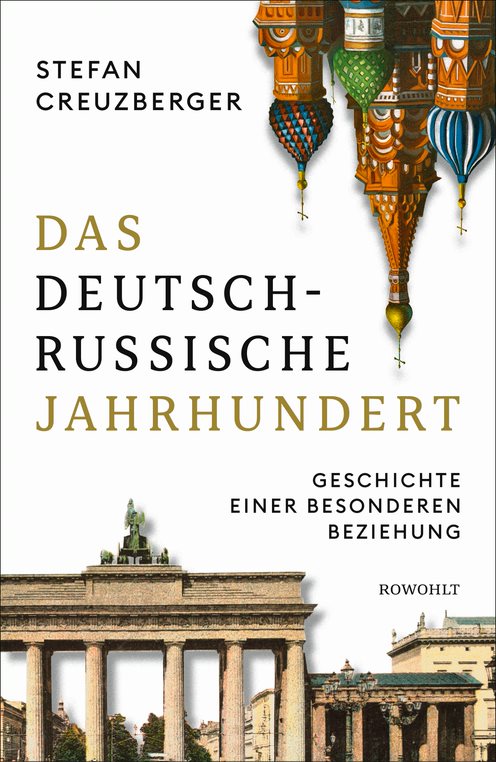
Stefan Creuzberger: Das deutsch-russische Jahrhundert (The German-Russian Epoch) (Rowohlt)
Is it possible to understand war? To understand Vladimir Putin, or contemporary Russia? – Probably not. But what we can understand, in retrospect, is how events develop and what they lead to. What Stefan Creuzberger describes here is a history of German-Russian relations: the tsarist era, revolution and upheaval, World War I, the Soviet Union, World War II, the Cold War, Willy Brandt’s Moscow and Warsaw Treaties and, finally, the fall of communism and the present. Creuzberger’s brilliant presentation of details is impressive, revealing a wealth of interconnections in our shared history that helps us to better understand our relationship with Russia today. At the same time, his interpretation of the present is also a revelation.
In short: the wealth of interconnections in our shared history helps us to better understand our relationship with Russia today.
Click here for a sample translation by Brian Poole.
Stefan Creuzberger, born in 1961 in Calw, is professor of Contemporary History at the University of Rostock. He heads the Research and Documentation Centre of Mecklenburg-Western Pomerania focusing on the history of dictatorships in Germany. He publishes on German and Russian history in the 20th century and is, among other things, co-editor of the academic anthologies “Akten zur Auswärtigen Politik der Bundesrepublik Deutschland” and a member of the Joint German-Russian History Commission.
For foreign rights enquiries please contact:
Gertje Berger-Maaß (Rowohlt)
Tel.: +49 (0) 40 72 72 – 222

Samira El Ouassil / Friedemann Karig: Erzählende Affen (Narrating Monkeys) (Ullstein)
Humans are animals capable of telling stories. They transform the jumble of their experiences into coherent stories with a beginning, an aim and an end. This ability not only saved the life of the storyteller Scheherazade, but also gave Homo sapiens a distinct evolutionary advantage. From Adam and Eve to QAnon, from Homer to Hollywood, we find universal narratives that give meaning to the world and form collective identities – but that also shape our images of the enemy and justify wars. Criss-crossing through the ages, El Ouassil and Karig trace this phenomenon and, vividly and with edifying enthusiasm, describe how it continues to function today.
In short: an exploration of universal narrative patterns that give meaning to the world – but that also shape our images of the enemy and justify wars.
Click here for a sample translation by Caroline Waight.
Samira El Ouassil, born in Munich in 1984, is a German author, actress, musician and politician. Since September 2018, she has been writing the column “Wochenschau” for the online portal Übermedien. She has been hosting the philosophical Audible podcast “Sag niemals Nietzsche” with Christiane Stenger since 2019 and writing an online column for Der Spiegel since 2020. Also since 2020, she has been hosting the podcast “Piratensender Powerplay” with Friedemann Karig. El Ouassil is the singer of the band Kummer and a member of the Verein Mensa (Mensa association).
Friedemann Karig, born in 1982, studied media science, politics, sociology and economics and writes for Süddeutsche Zeitung, SZ-Magazin, Die Zeit and jetzt, among others. He hosted the Grimme Award-nominated “Jäger&Sammler” (Hunters & Collectors), created by funk, the online youth channel of ARD and ZDF. After publishing “Wie wir lieben. Vom Ende der Monogamie” (How We Love. On the End of Monogamy) in 2017, he made his literary debut with “Dschungel” (Jungle). Karig lives in Berlin and Munich.
For foreign rights enquires please contact:
Annemarie Blumenhagen
Tel.: +49 (0) 30 23456 450
annemarie.blumenhagen@ullstein.de

Ludwig Huber: Das rationale Tier (The Rational Animal) (Suhrkamp)
A rook learning to extract food from a tube with a stick; monkeys cracking nuts with a wide range of tools; dolphins hesitating when they don’t recognise a sound correctly. Animals communicate, read minds and plan actions. They are – as countless experiments over the past decades have shown – far more intelligent than we humans have long assumed. What’s more, they also act rationally, as Ludwig Huber describes. In his book, he brings us up to date on the latest research in cognitive biology and offers impressive evidence that the results of these studies compel us to change our attitude towards animals – namely, to treat them more rationally and ethically. His book is science and elucidation at its best.
In short: Ludwig Huber brings us up to date on the latest research and gives us reasons to treat animals more rationally and ethically.
Click here for a sample translation by Laura Wagner.
Ludwig Huber, born in 1964, is Professor and head of the interdisciplinary Messerli Research Institute for Human-Animal Relations at the University of Veterinary Medicine Vienna. He heads the Department of Comparative Cognition Research there, which he founded and which focuses on research into the cognitive and emotional abilities of animals.
For foreign rights enquires please contact:
Nora Mercurio
Tel.: +49 (0) 30 740744 231

Stephan Malinowski: Die Hohenzollern und die Nazis (The Hohenzollern and the Nazis) (Propyläen)
In this brilliant social study, Stephan Malinowski describes how, from the 1920s onwards, the Hohenzollern family and the Nazis moved closer together, forging symbolic political alliances. Despite their many differences in terms of manners and origins, the old aristocracy and new movement came together in their mutual hatred of democracy and the Weimar Republic. This was the cement that bound these very different people and milieus. Malinowski’s politically and legally explosive book about this collaboration is as cleverly composed as it is insightful – a joy and intellectual delight to read, despite the horrors. And Malinowski’s thorough research and clear arguments, which can also be understood as a response to the constant threat of legal action by the House of Hohenzollern, are also very persuasive.
In short: a politically and legally explosive book, as cleverly composed as it is insightful.
Stephan Malinowski studied and taught history in Berlin, France, Italy, the USA, and Ireland. Since 2012, he is a professor for European history at the University of Edinburgh. His previous book “Nazis and Nobles” received various awards. The expert opinion, which he prepared on behalf of the state of Brandenburg in 2014, plays an important role in the discussion about the restitution claims asserted by the “head of the house” of Hohenzollern.
Sample and contact details to come

Steffen Mau: Sortiermaschinen (Sorting Machines) (C.H.Beck)
Borders are invisible for some and insurmountable for others – hence their double function as “sorting machines”. In contrast to the myths of borderless globalisation, borders – those places that can open or close, where we can be waved through or rebuffed – have not become more permeable per se in recent history; on the contrary, they have been expanded, enhanced, technically optimised and “fortified”. Worldwide, they shape people’s opportunities in life, existentially and unequally. Since the fall of the Berlin Wall in Germany, these fortified borders have multiplied around the world. In an empirically rooted and stylistically straightforward manner, Berlin sociologist Steffen Mau analyses the borders of our global present, destroying many illusions about a borderless world in the process.
In short: Steffen Mau analyses the borders of our global present, destroying many illusions about a borderless world in the process.
Click here for a sample translation by Nicola Barfoot.
Steffen Mau teaches macrosociology at Humboldt University in Berlin. His most recent books are “Das metrische Wir. Über die Quantifizierung des Sozialen” (The Metric We. On Quantifying the Social) (2017) and “Lütten Klein. Leben in der ostdeutschen Transformationsgesellschaft” (Lütten Klein. Life in the East German Transformation Society) (2019). In 2021, he received the Leibniz Prize of the German Research Foundation (DFG).
For foreign rights enquiries please contact:
Susanne Simor (C.H.Beck)
Tel.: +49 (0) 89 381 89 228
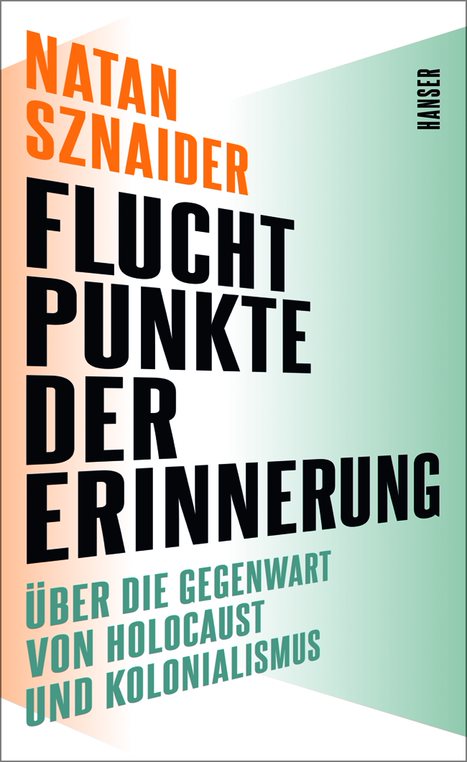
Natan Sznaider: Fluchtpunkte der Erinnerung (Vanishing Points of Memory) (Carl Hanser)
Is the Holocaust an unparalleled crime or an act of colonialism, and what are the differences between anti-Semitism and racism? Starting from the finding that the globalisation of memory does not necessarily lead to a shared meta-narrative, Natan Sznaider intervenes in the heated controversy about the relationship between the Holocaust and colonialism. Drawing on authors such as Hannah Arendt and Albert Memmi, he offers important suggestions to facilitate a productive conversation between postcolonialism and Jewish experiences. To this end, he clearly exposes the ideological short-circuits that cluster around apparently morally sound political desires. An important, stimulating and intelligent book in a debate that is, as Natan Sznaider notes, about nothing less than our “shared responsibility for the public sphere”.
In short: Sznaider offers suggestions to facilitate a productive conversation between postcolonialism and Jewish experiences.
Click here for a sample translation by Gesche Ipsen.
Natan Sznaider: Vanishing Points of Memory
Natan Sznaider was born in 1954 in Mannheim, and has worked as Professor of Sociology at the Tel Aviv Academic College since 1994. His most recent publications include “Gesellschaften in Israel. Eine Einführung in zehn Bildern” (Suhrkamp 2017), “Neuer Antisemitismus? Fortsetzung einer globalen Debatte” (edition suhrkamp 2019, ed. with Christian Heilbronn and Doron Rabinovici) and “Politik des Mitgefühls. Die Vermarktung der Gefühle in der Demokratie” (Beltz Juventa 2021).
For foreign rights enquiries please contact:
Friederike Barakat
Tel: +49 (0) 89 99830-509
The Shortlist – a summary
Bettina Baltschev: Am Rande der Glückseligkeit. Über den Strand (On the Edge of Happiness. On Beaches)
Bettina Baltschev begins her journey to Europe’s beaches on a beach on the North Sea. Starting from eight beaches in eight countries, she goes on excursions into the present and into the history of places of yearning that, for some, are a last resort. She writes of true and fictitonal, happy and tragic fates on beaches – on the edge of our world.
Alice Bota: Die Frauen von Belarus. Von Revolution, Mut und dem Drang nach Freiheit (The Women of Belarus. On Revolution, Courage and the Pursuit of Freedom)
Peaceful demonstrators in Belarus defied the violent regime. Alice Bota tells the stories of the three leading protagonists, who became politicians against their will: Svetlana Tikhanovskaya, Maria Kolesnikova and Veronika Zepkalo. A portrait of an uprising.
Stefan Creuzberger: Das deutsch-russische Jahrhundert. Geschichte einer besonderen Beziehung (The German-Russian Epoch. History of a Special Relationship)
German-Russian relations – in all their ambivalence, contradictoriness and violence – played a key role in the 20th century. Stefan Creuzberger tells the story of this tense relationship in an era marked by dramatic turning points, interconnections and change.
Samira El Ouassil & Friedemann Karig: Erzählende Affen. Mythen, Lügen, Utopien – wie Geschichten unser Leben bestimmen (Narrating Monkeys. Myths, Lies, Utopias – How Stories Determine Our Lives)
A powerful story can save the world – or destroy it. It can decide elections, save lives, but also start wars and entrench injustice. Based on influential narratives from antiquity to the present, Samira El Ouassil and Friedemann Karig trace this ambivalent power – and show which stories are dangerous to us today and why we need new ones.
Ludwig Huber: Das rationale Tier. Eine kognitionsbiologische Spurensuche (The Rational Animal. A Search for Clues in Cognitive Biology)
Can we grant non-human beings rationality and consciousness? Ludwig Huber takes stock of the current state of research on animal thinking and, drawing on the most significant experiments and observations, explains what animals can do. These new scientific findings compel us to reconsider our current attitude towards animals.
Stephan Malinowski: Die Hohenzollern und die Nazis. Geschichte einer Kollaboration (The Hohenzollern and the Nazis. History of a Collaboration)
For over 100 years, the “heads” of the Hohenzollern family have worked repeatedly with lawyers, journalists and PR consultants to burnish the family’s public image. Stephan Malinowski analyses these curated self-presentations in a historical narrative that spans three generations, up to the present day.
Steffen Mau: Sortiermaschinen. Die Neuerfindung der Grenze im 21. Jahrhundert (Sorting Machines. Reinventing Borders in the 21st Century)
In recent years, deep cracks have appeared in the cosmopolitan dream of a borderless world. But was it ever realistic in the first place? Steffen Mau shows that, from the outset of the age of globalisation, borders have not been more open but transformed into powerful sorting machines instead. While a small circle of privileged people is able to travel almost anywhere today, the vast majority of the world’s population continues to be systematically excluded.
Natan Sznaider: Fluchtpunkte der Erinnerung. Über die Gegenwart von Holocaust und Kolonialismus (Vanishing Points of Memory. Holocaust and Colonialism in the Present)
What distinguishes racism from anti-Semitism? Is it possible to commemorate the victims of the Holocaust and of colonialism without relativising history? In the work of Hannah Arendt, Edward Said and others, Natan Sznaider finds ideas and arguments to advance the debate on the relationship between colonial crimes and the Holocaust.
*Only books submitted to us and selected by the jury qualify for guaranteed translation funding*




